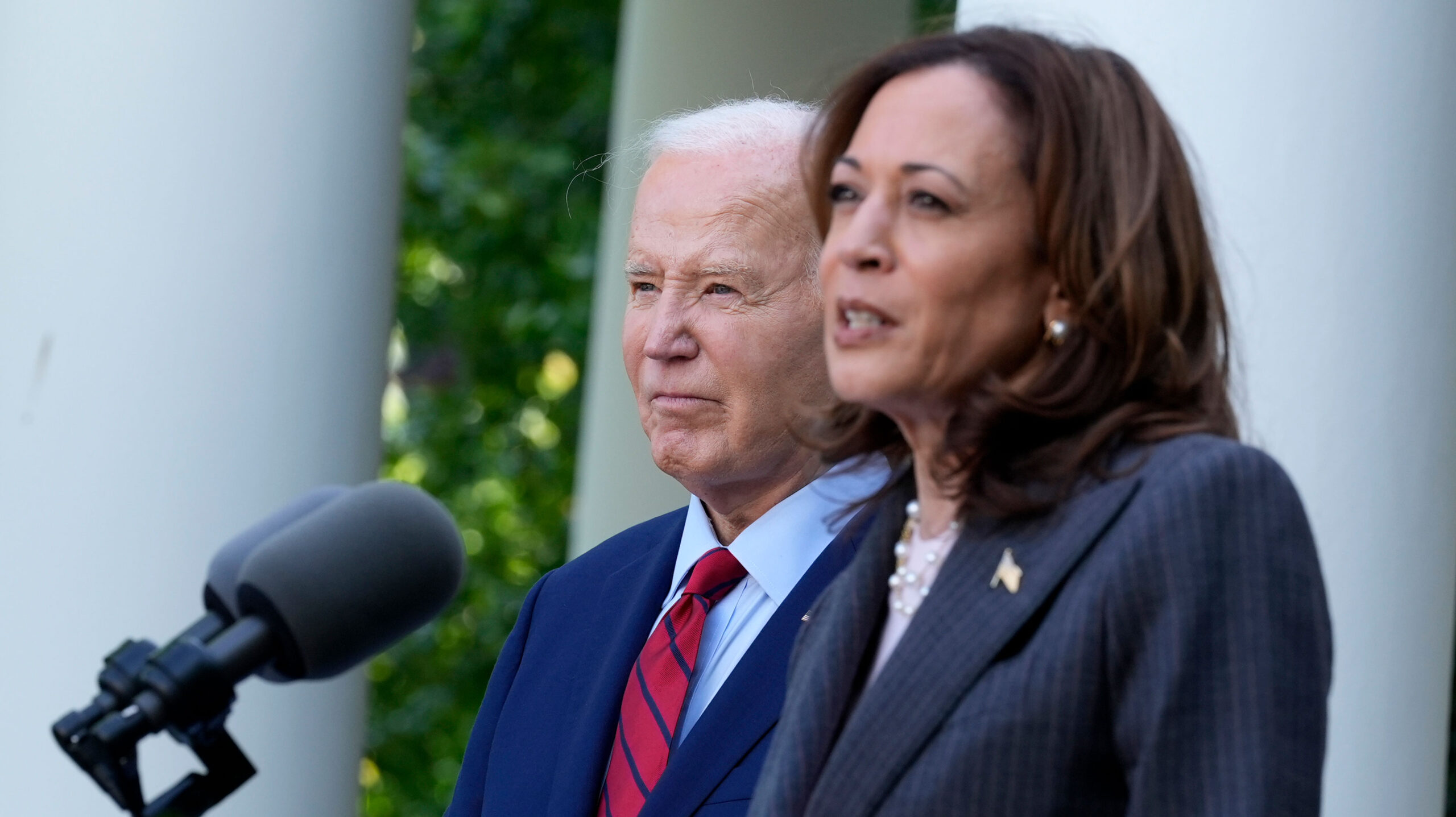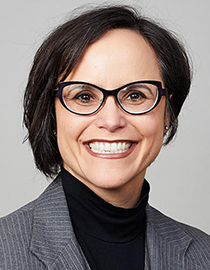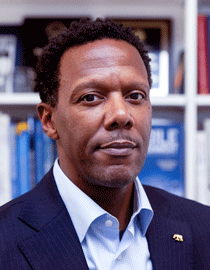Shifting from Biden to Harris, Democrats reset the race. But scholars see risks.
UC Berkeley scholars say President Joe Biden’s departure from the race could expand Democrats’ base. But the outcome may turn on whether they can craft a message that will ease race and gender tensions and galvanize young voters.

Susan Walsh, Associated Press
July 22, 2024
It is a moment of extraordinary significance in U.S. political history: Joe Biden, 81 years old and seemingly frail, is stepping away from his campaign less than four months before the election. He has endorsed Vice President Kamala Harris, 59, who would be the first Black, Asian-American woman ever to lead the nation. Democrats have quickly rallied behind her.
Scholars at UC Berkeley are unanimous that the election has been transformed, and that the Democrats’ change of candidates will have vast, but unpredictable, implications for the campaign. The impact could play out not just in the horse race with Donald Trump and GOP vice presidential candidate J.D. Vance, but in the courts, in simmering cultural tensions over race relations and gender roles, in efforts to engage young voters and in the health of U.S. democracy.
In the hours after Biden’s announcement, some of Berkeley’s top political scholars offered their analysis and insights.
Berkeley News: What effect will Biden’s decision to drop out have on the presidential race?

Biden’s decision transforms the election. There is little question that he was significantly behind former President Trump, and the prospects for making up that ground were dim once the debate greatly exacerbated preexisting concerns about the president’s age.
Democrats have had a serious enthusiasm problem looking ahead to November. Biden’s departure gives an opening for the party to nominate a candidate who is better positioned to mobilize those with unfavorable views of both the current and former president.
Biden’s decision will also reverberate in the race to win Congress. Every Democratic candidate for Congress was going to face ongoing questions about the president’s ability to serve a second term. This takes those questions off the table, allowing Democratic candidates to focus on what Donald Trump and a GOP Congress would do if they are elected in November.
Biden’s endorsement of Vice President Harris makes it more likely that the party quickly unifies behind her. I would be surprised if one of the top potential Democratic candidates for 2028 decides to challenge the vice president at this late date in the calendar.
— Eric Schickler, political scientist and co-director of the UC Berkeley Institute of Governmental Studies
Some people have suggested that a change of candidates at this point could fully reset the race. Is that possible? Or are people so locked into their camps that this change will make no difference?

I believe that many Americans will feel a tremendous sense of relief in the next few days. For those committed to President Biden, they will be inspired by seeing that he has recognized his limitations and decided to enable a renewal of the Democratic Party by dropping out.
For those who are independents or who lean toward the Republican Party and who are uncertain about Donald Trump, especially after his meandering, sometimes incoherent and grievance-filled acceptance speech at the Republican National Convention, there will be the hope that the Democrats nominate an energetic, thoughtful, youthful and capable candidate who can put forth a positive program.
For those who are die-hard Donald Trump supporters, there will be the usual presumption of his infallibility and invincibility, so not much will change there. But for undecided voters and supporters of Joe Biden, there will be a sense that there is now the possibility that America will have a real choice — not just between a candidate who often sounds unhinged and a candidate who seems too old for the job.
President Biden deserves our praise for his willingness to step aside and to allow America to get beyond the present impasse, and I suspect that his decision will fill the sails of the nation and lead to a campaign that will focus on issues and democracy instead of fears and recriminations.
— Henry Brady, former dean of the UC Berkeley Goldman School of Public Policy, former president of the American Political Science Association
What are the opportunities here for the Democratic Party and its candidates? What are the risks?

Photo courtesy of Lisa García Bedolla
President Biden’s historic decision to leave the presidential race opens up an opportunity for the Democratic Party: the chance to reengage weak partisans and no party preference voters.
We often forget that who decides U.S. presidential elections is, in fact, those who choose not to vote. The 2020 presidential election had the highest turnout since 1900, yet one-third of eligible voters stayed home. Our political punditry is caught up in a polarized partisan world, ignoring that many Americans are simply disengaged from, and disenchanted by, that world.
This moment gives the Democrats the chance to shift the narrative and give those disaffected eligible voters a reason to support Vice President Harris. What those voters want is a candidate who is willing to address the big issues that Americans are facing today: inflation, the lack of affordable housing and a growing sense that their communities are unsafe.
What they don’t want is a slick marketing campaign, with a candidate who parses every word and who is overly positive about how things are going, particularly regarding the economy. Americans are still suffering from a profound post-COVID sense of social dislocation. They want a president who understands that and has concrete plans for addressing it.
— Lisa García Bedolla, political scientist, vice provost for graduate studies and dean of the Graduate Division
The Democrats thus far seem to be coming together quickly behind Vice President Kamala Harris to replace Biden at the top of the ticket. Given that she is a Black, Asian-American woman, how do you think race, ethnicity and gender issues might play out in the campaign between now and election day in November?

Brittany Hosea-Small for UC Berkeley
The ascendance of Vice President Kamala Harris to the presumptive Democratic presidential nominee will likely raise a number of both legitimate and offending questions and activate stereotypes that distract from the importance of the moment.
Naturally, people will see Harris as a Black woman “with Asian heritage,” a liberal Californian and someone who might not have earned the powerful position she now holds, believing that Biden “gave” her the opportunity. The media and public should focus instead on her merits as San Francisco district attorney, California attorney general, U.S. senator and White House cabinet member. She has more political experience than former President Donald Trump and vice-presidential nominee J.D. Vance combined.
Already, many pundits are using narratives proposing that “America is not ready for a Black woman” (or “woman”) president. This may be true, as many Americans hold stereotypes that women are weak and passive leaders. In addition, recent comments from both male and female athletes and entertainers have proposed that a woman’s place is in the home as a wife or caregiver, as opposed to a working professional or public leader.
In terms of race, Harris is a graduate of Howard University, a historically Black institution, and a member of Alpha Kappa Alpha sorority, which brings some credibility among African American voters. Her lighter complexion and Asian background, combined with her role as a legal prosecutor, also raise questions of authenticity among some Black voters. When you are the first of a particular demographic to do something, you are almost always burdened with the handicap of explaining why.
Thus, for white males, the average task is to promote your merits and explain away your faults, but for women and racial-ethnic minorities, the task is to get people to see your merits and not see your group identity as a fault.
— David C. Wilson, dean of the Goldman School of Public Policy and author of Racial Resentment in the Political Mind (University of Chicago Press, 2022)
Does a change of candidate create conditions in which the Democrats will be better able to go on the offense against a president and vice president who would seem to be vulnerable?

Americans are hungry for a real leader who makes us feel great about our country and her ability to steer it to still greater heights, not yet another politician who reads issue polls in the morning and spends the rest of the day telling us what she thinks we want to hear on this or that “kitchen table issue.”
To maximize her chances in November, Kamala Harris must move past the Biden campaign’s banalities about controlling prescription drug prices and “growing the economy from the middle out.” The vice president’s task is to show herself to be stronger, firmer in her convictions, more committed to the law and the defense of democracy and more patriotic than Trump.
It was heartening to see her step out on her first day as nominee-presumptive with a hardcore message that casts herself as a tough-minded prosecutor of abused women and predatory banks. That contrasts with Trump, the felonious abuser of women and servant of the plutocracy.
Projecting exuberance and boundless optimism about the nation’s promise will also be key to seizing the flag from MAGA’s ethnonational nativists and reaching swing voters. Many of those who know Harris personally say she’s got the right stuff. Now’s the time to bring it — and bring it hard.
— M. Steven Fish, political scientist, author of “Comeback: Routing Trumpism, Reclaiming the Nation, and Restoring Democracy’s Edge (Rivertowns Books, May 2024)
In effect, Biden’s decision means that the Democrats must throw out the results of the primary elections earlier this year, but a new structure for nominating a candidate has not emerged. How are the Democrats going to manage this?

The biggest question going forward is whether the Democrats want an open and competitive nomination process, or one that appears to be open — but isn’t.
Those who are confident in Harris’ ability to beat Trump want to have this set up for her without looking like a coronation. But Democrats who are worried about her ability to win in November are looking for ways to set up a legitimate contest that would allow the most well-prepared and skilled candidate to emerge as the nominee. That might be Harris, or it might not. But the point would be for her to prove herself, rather than having the nomination handed to her.
Harris and her team are already working furiously to nail down enough support to discourage any opponents from stepping forward. We’ll see in the next few days whether she can pull that off or not. But the outcome will be a direct result in the level of confidence that party leaders have in Harris, or whether she still has some convincing to do.
— Dan Schnur, veteran Republican political strategist, lecturer at the UC Berkeley Institute of Governmental Studies
To what extent will the change of candidates – and the process used to make the change — face legal challenges from Republicans or others? How viable are those challenges likely to be?

A legal challenge to Biden’s withdrawal is very unlikely to succeed.
Generally, the doctrine in this area gives political parties a great deal of latitude to conduct their internal affairs, including who they select as their presidential candidate. Political parties are ultimately private entities, even if their actions have immense public implications.
This is not to say that there are no limits on their actions. For instance, they are not allowed to racially discriminate in the candidate selection process. But it is very unlikely that a court will find that such limits have been breached in this case.
— Emily Rong Zhang, assistant professor of law, specializing in election law
The change of candidates will almost certainly reflect a broad generational change in the leadership — and perhaps the orientation — of the Democratic Party. What are the implications of having a younger candidate?

Elected officials in the U.S. are the oldest of any democracy. In recent years, some politicians’ decisions to remain in office at very old ages have had large effects on political representation. Joe Biden, in voluntarily ending his presidential campaign, has therefore done something relatively rare in American politics.
Kamala Harris, at age 59, is about the age of the average member of Congress. While older than leaders of most other countries, Harris is significantly younger than Donald Trump and other recent presidential contenders. This could be electorally advantageous, as American voters consistently tell pollsters that they would prefer younger politicians.
This story also speaks to how political parties work. Parties are meant to take a bunch of people — voters, politicians, policy activists and others — and make them into a (somewhat) cooperative team. One of the most important collective decisions that parties in the U.S. have to make is to nominate a competitive presidential candidate.
Members of the Democratic Party worried that Biden was not an especially competitive candidate in 2024, so they made a coordinated push to replace him. Both this push, and the relatively seamless transition to Harris as presumptive nominee, show signs of a functioning political party that is able to coordinate and compromise around finding a solution that might benefit the whole party.
— Jake Grumbach, associate professor at the Goldman School of Public Policy
Could this change of candidates, and the almost certain emergence of a younger candidate from a new generation, increase turnout among young voters this November?

Brandon Sánchez Mejia/UC Berkeley
A younger candidate entering the race could energize the base and inject new enthusiasm for younger voters who have grown weary of politics-as-usual.
Whether this translates to a large surge in youth voter turnout in November may come down to whether the new Democratic nominee also can convince young voters of a credible plan to address the existential threats they see in their everyday lives — a concrete plan to address climate change, clear ideas for how to shore up our democratic institutions, and an economic policy agenda that will improve social mobility and convince younger generations that the American Dream is still within their reach.
—Sarah Swanbeck, executive director of the Berkeley Institute for Young Americans